I got two tables in my SQLite DB: entities and user_actions. Their approximate schemes:

The flow of the program is something like this (all DB accesses handled by ContentProvider):
- The user performs some action which modifies one of the entities
- The corresponding entity is updated in
entitiesimmediately.locally_modifiedvalue of this entity is set to1 - The information about user's action is stored in
user_actions - At some point in future a sync session with the server is being initiated (I use SyncAdapter framework)
- User's actions from
user_actionsare uploaded to the server one by one and removed from the DB in a background thread - When the uploading completed, I need to clear
locally_modifiedflags inentities
At this point I encounter my atomicity issue: the synchronization with the server happens in a background thread, therefore the user can use the app and perform additional actions. As a consequence, right before I clear locally_modified flag for an entity, I must check that there are no records in user_actions corresponding to this entity. These three steps must be executed atomically for each entity having locally_modified set to 1:
- Query
user_actionsfor entries corresponding to entity's_id - Test whether the query from #1 returned an empty set
- Clear
locally_modifiedof that entity to0
Given the above scenario, I have three questions:
Q1: Is there a way to lock SQLite DB accessed over ContentProvider in Android such that it can be accessed only by the locking thread?
Q2: If the answer to Q1 is positive, what happens if some other thread tries to access a locked DB? What precautions should I take to ensure reliable operation?
Q3: It is possible to execute atomic transactions with conditional logic using ContentProviderOperation? You can use "back-references" as described in this answer and this blog post to reference the result of a previous operations, but is there a way to use that result in some kind of if-else statement?
Thanks